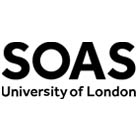The MSc Economics provides a unique training in mainstream and heterodox economic approaches that equips you with the tools that are necessary for analysing the global challenges facing our economies.
You will have the chance to engage with cutting-edge research on issues such as the macroeconomics of climate change, the impact of shadow banking on financial stability, the role of industrial ecosystems, the causes and effects of inequality, the importance of environmental justice for climate-aligned development, and the role of gender in economics.
In macroeconomic modules, you will engage with different schools of macroeconomic thought on issues like inflation, unemployment, inequality, money creation, climate change and macroeconomic policy. In microeconomic modules, different theoretical perspectives on issues like market failures, risk, market structures and production are compared and contrasted. Economic modelling is at the core of these modules.
In econometric modules, you will receive training in modern econometric methods and learn how to use these to examine real-world issues. Optional modules like China and World Development, Economic development of Africa and Political economy of development and change in the Middle East provide regional perspectives, based on the tradition of SOAS. Other optional modules, such as the Economics of Environment and Development, International Finance and Green Finance will give you the opportunity to obtain a deeper understanding of the interactions between economic, financial and ecological systems and engage with recent policy debates.
R coding is used across several modules. You will learn how to use R to simulate economic models, analyse economic policies and conduct econometric analysis.
Students on this programme can apply for a dissertation co-supervised with key international organisations, such as the International Trade Centre (ITC), the United Nations Industrial Development Organisation (UNIDO), the United Nations Development Program (UNDP) and the World Bank.






